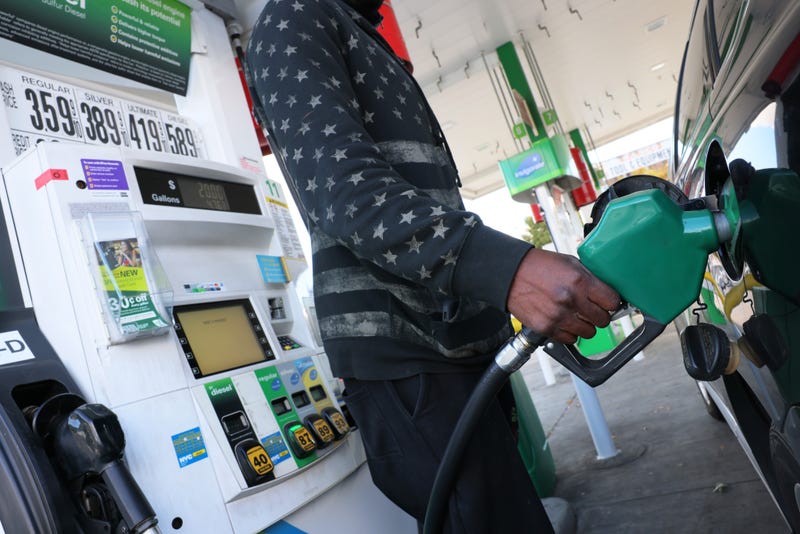
PHILADELPHIA (KYW Newsradio) — Just about all anyone wants this holiday season is cheaper gas — and that wish just may come true.
Some analysts predict gas prices will continue to decline and fall below $3 a gallon by Christmas.
The average price for a regular gallon of gas in the Philadelphia area right now is $3.79 — a 12-cent drop in the last week and 26 cents in the last month, according to AAA Mid-Atlantic. In South Jersey, the average is $3.52 a gallon, which is down 15 cents from last week.
The rates, of course, move in the direction of oil prices, which have fallen due to of global economic concerns. Recession fears in the U.S. and Europe are bringing demand down, as are the very strict COVID-19 policies in China.
“Their zero-COVID policy has really shut down their economy and really shut down the demand for oil, and that’s one of the main reasons why oil prices have come down,” explained Dr. Scott Jackson, who teaches petroleum engineering at Villanova University. “And because a couple of major refineries in the United States actually took an outage for a while, and they’ve come back online.”
related podcast:

Due to those overall economic concerns, OPEC (the Organization of the Petroleum Exporting Countries) had voted to cut production by 2 million barrels a day through the end of the year. U.S. officials were not happy with that decision, fearing gas prices would shoot up, but in fact, the opposite happened.
As for prices dropping below $3 by Christmas, Jackson is hesitant to follow analysts’ predictions.
“When people start making predictions as to what’s gonna happen, it always amazes me that the world does not cooperate with their crystal ball,” he said. For instance, China could ease its COVID-19 restrictions, and demand would go up. OPEC could decide to cut production again.
And then, there’s the European Union’s price cap imposed on Russia, starting at $60 a barrel. EU and American officials said the cap keeps Russian oil flowing in the global market but still limits the amount of money Russia can bring in to pay for its ongoing invasion of Ukraine.
All of these factors could be curveballs that potentially steer prices up again.

